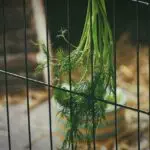Vietnam's unique climate optimizes the growth of Kratom (Mitragyna speciosa), a plant rich in alkaloids like mitraphylline and 7-hydroxymitragynine, which are responsible for its stimulating or sedative effects. The country's Kratom features a distinctive fermentation processing method that can alter and potentially increase the concentration of these active compounds, distinguishing Vietnamese Kratom from others. This fermentation process is unique and enhances the alkaloid profile, offering different experiences compared to traditional drying methods. Similarly, high-quality fermented Kanna powder from Vietnam, derived from Sceletium tortuosum, is crafted using a specialized fermentation technique that modifies the natural alkaloids without heat or chemicals, resulting in a potent product with refined attributes. This powder is celebrated for its potential mood and stress improvement benefits, as well as its cognitive function enhancement, and is available in various forms like capsules, teas, or tinctures. Users should follow recommended dosages and consult healthcare professionals if they have health conditions or are on medications that could interact with fermented kanna powder to ensure safety and personalized experiences. Consistent use and monitoring are key for a safe and potentially beneficial engagement with this supplement.
Discover the unique attributes of Vietnam’s Kratom leaves, a botanical gem that has captured the attention of herbal enthusiasts worldwide. This article delves into the potency of Vietnamese Kratom, offering readers a comprehensive overview of its properties. We explore the intricate fermentation process that elevates Vietnamese Kratom to premium Fermented Kanna Powder, a product renowned for its enhanced effects and applications. From understanding how this powder is crafted from Vietnam’s harvests to its diverse uses, applications, dosage, and safety considerations, this piece provides an in-depth look at the world of Fermented Kanna Powder, setting the stage for a deeper appreciation of its benefits and proper utilization.
- Unveiling the Potency of Vietnamese Kratom Leaves: A Botanical Overview
- The Fermentation Process: Crafting Premium Fermented Kanna Powder from Vietnam's Kratom Harvests
- Utilizing Fermented Kanna Powder: Applications, Dosage, and Safety Considerations
Unveiling the Potency of Vietnamese Kratom Leaves: A Botanical Overview

Vietnam’s rich biodiversity offers a unique contribution to the world of natural botanicals, with Vietnamese Kratom leaves standing out for their distinctive qualities. Known scientifically as Mitragyna speciosa, Kratom leaves have long been recognized for their alkaloid content, which includes mitraphylline and 7-hydroxymitragynine, among others. These compounds are responsible for the plant’s various effects, which can range from mild stimulation to sedative properties, depending on the dose and strain. The Vietnamese climate, characterized by its humid tropical conditions, provides an ideal environment for the cultivation of Kratom, allowing for the development of leaves with a potent concentration of these active alkaloids.
Interest in Kratom has surged globally, with many enthusiasts exploring different strains and their effects. Within this context, Vietnamese Kratom has garnered attention due to its unique characteristics. Unlike other strains, some Vietnamese Kratom leaves undergo a fermentation process, which can enhance the alkaloid profile and influence the plant’s pharmacological impact. This process is not to be confused with the traditional drying methods often used in Kratom processing. The fermentation technique, when applied correctly, may lead to a more potent product, potentially offering a different experience from non-fermented varieties. Additionally, the fermentation process could yield a unique alkaloid profile that might be of particular interest to those seeking specific effects or who have developed tolerance to standard Kratom preparations. As with any botanical substance, it is crucial to approach Vietnamese Kratom with care, respecting both its potential and the need for responsible use and scientific research to fully understand its properties.
The Fermentation Process: Crafting Premium Fermented Kanna Powder from Vietnam's Kratom Harvests

The production of premium fermented Kanna powder from Vietnam’s Kratom harvests is a meticulous process that begins with the careful selection of high-quality Kratom leaves. These leaves are harvested at their peak maturity to ensure potency and effectiveness. Once collected, the leaves undergo an intricate fermentation process, which distinguishes this product from traditional kratom powders. This process involves controlling the environment for optimal fermentation, allowing the natural enzymes within the leaves to break down alkaloids like mitragynine and 7-hydroxymitragynine in a specific manner. The fermentation parameters are critical; they influence the alkaloid profile and subsequently the experience of the end product. Unlike heat or chemical treatments, fermentation gently modifies the leaf’s composition, preserving many of its natural constituents while elevating others to create a unique Kanna powder with a distinct and potent effect. The result is a finely-milled, darkly hued powder that embodies the essence of Vietnam’s Kratom harvests, offering users a distinctive experience that stands out in the realm of natural supplements. This fermented kanna powder is sought after for its enhanced properties and is a testament to the craftsmanship and dedication of Vietnamese producers in elevating traditional kratom to new heights.
Utilizing Fermented Kanna Powder: Applications, Dosage, and Safety Considerations

Fermented kanna powder, derived from the indigenous plant Sceletium tortuosum, has garnered attention for its potential therapeutic properties. Traditionally used in South African culture, this powder has been employed to enhance mood and manage stress. In modern applications, fermented kanna powder is often incorporated into various wellness regimens, with research suggesting it may promote a sense of calm and improve cognitive function. Users looking to explore its benefits can incorporate it into their daily routine through capsules, teas, or tinctures.
When considering dosage, it’s crucial to adhere to guidelines provided by reputable sources or healthcare professionals due to individual differences in sensitivity and metabolism. Typical dosages for fermented kanna powder range from 250 mg to 1 gram, divided into two daily doses. Safety considerations are paramount; while generally well-tolerated, it can interact with certain medications and may not be suitable for individuals with specific health conditions. Pregnant or breastfeeding women should avoid its use, and those taking antidepressants should consult a healthcare provider before incorporating fermented kanna powder into their regimen. As with any supplement, consistency and awareness of individual responses are key to a safe and beneficial experience with fermented kanna powder.
In conclusion, the unique potency of Vietnamese Kratom leaves has been thoroughly explored, highlighting their distinct botanical properties. The meticulous fermentation process that transforms these leaves into premium Fermented Kanna Powder has also been elucidated, offering insights into a novel approach to enhancing the product’s efficacy and quality. Users interested in incorporating this potent substance into their wellness routine can do so by understanding its applications, optimal dosage, and safety considerations. Fermented Kanna Powder stands as a testament to the natural benefits that can be derived from Vietnam’s Kratom harvests, offering an alternative for those seeking botanical support. As research continues to evolve, the potential of Fermented Kanna Powder is poised to be further realized, making it a subject of ongoing interest and investigation in the wellness community.






